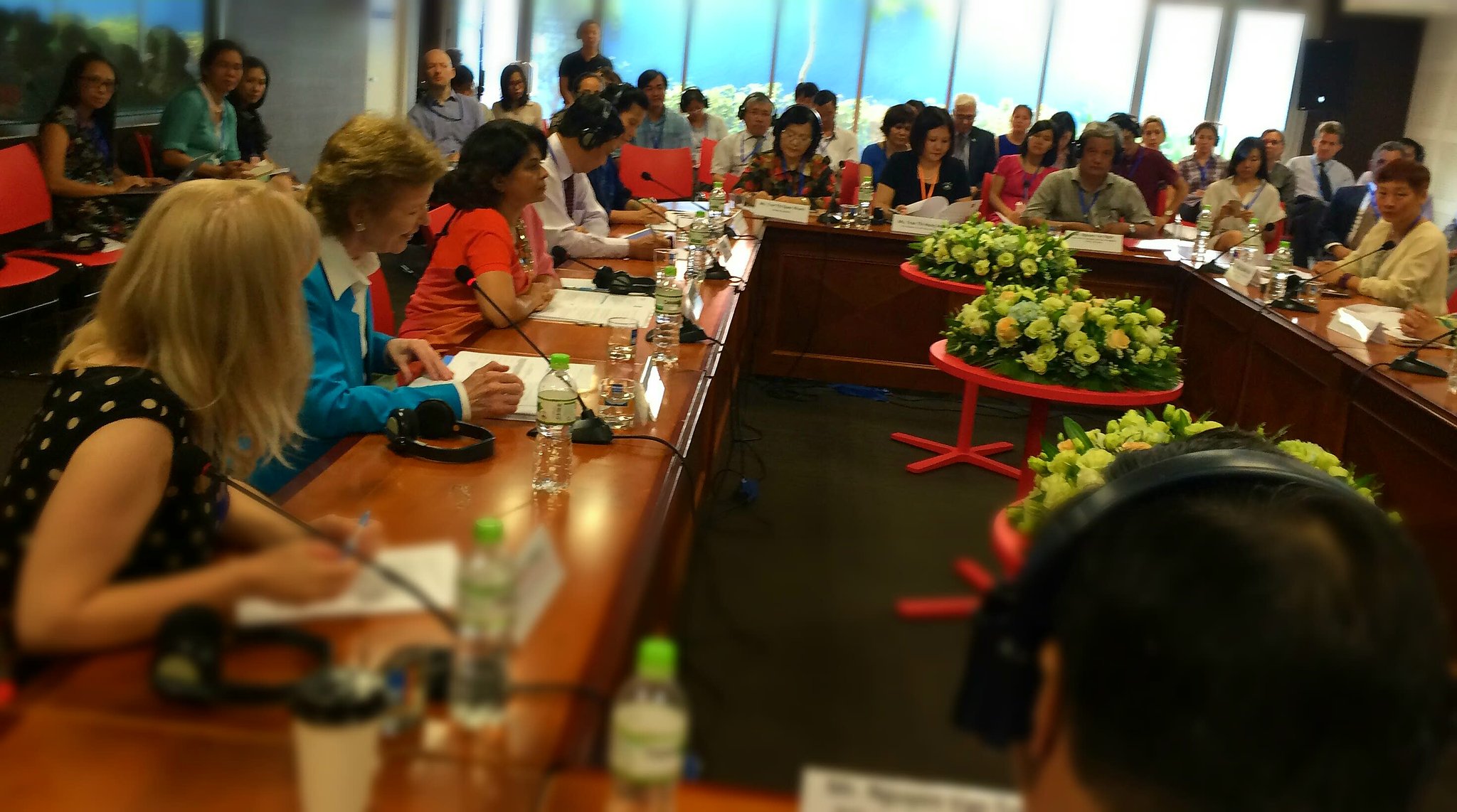Mary Robinson a joined a climate justice dialogue on gender equality and climate justice which was convened by UN Women Viet Nam on the 5th of September in Hanoi, Viet Nam. The event brought together policy makers, civil society representatives, UN agencies and grassroots women leaders to discuss the importance of valuing the knowledge and expertise of grassroots women when designing climate action in Viet Nam.
Nguyen Thi Thuy Trang, a community leader from southern Viet Nam said “We need to fully understand the issues and challenges that women face. We create more opportunities and spaces for them to speak up” when asked how best decision makers might design climate policies that responded to women’s needs.
Mrs. Nguyen was one of four grassroots community leaders participating in the roundtable who spoke to their lived experience of climate change in Viet Nam. Viet Nam is a country that is acutely vulnerable to the impacts of climate change and women, due to existing gender inequalities, often bear the heaviest burden in the face of these impacts. This is exacerbated in situations of poverty. “In my home town the majority of my people focus on agriculture”, explained Le Thi Ah Hong “we are heavily vulnerable to climate change. In the past, storms and floods have ruined our crops and livelihoods and uprooted our lives”.
In her opening comments, UN Country Coordinator Pratibha Mehta said that while the impacts of climate change were gendered, she stressed the importance of viewing women not as just as victims. Emphasising how women are key actors in their own development and the fight against climate change Pratibha Mehta said “We must listen to women leaders from communities, to understand the challenges they face and their solutions for overcoming these challenges”. These sentiments were echoed by Mr. Nguyen Van Tue, Director General of the Department of Meteorology, Hydrology and Climate Change who said “women’s knowledge and traditional skills are very helpful to policy making efforts and must be considered”.
Nuala O’Brien, Head of Development at the Embassy of Ireland to Viet Nam said that enabling grassroots women to contribute to policy making requires both a top down and a bottom up approach. She emphasised the importance of investing resources in women at a local level to enable them to become agents of change in their communities.
In her concluding remarks, Mary Robinson said that Viet Nam’s implementation of the 2030 Agenda for Sustainable Development was made all the more challenging by the impacts of climate change. She called on decision makers in Viet Nam to allow women with lived experience of climate change to participate in the design, planning and implementation of climate action to ensure that the responses benefit from their knowledge. “Today we are in a new normal”, she said “where the impacts of climate change must be adapted to. In order to do this successfully, we must adopt a holistic approach. We must listen to, and learn from women living on the front lines”.
Related Links
Our Work on Women’s Leadership and Climate Change
Policy Brief: Women’s Participation: An Enabler of Climate Justice


